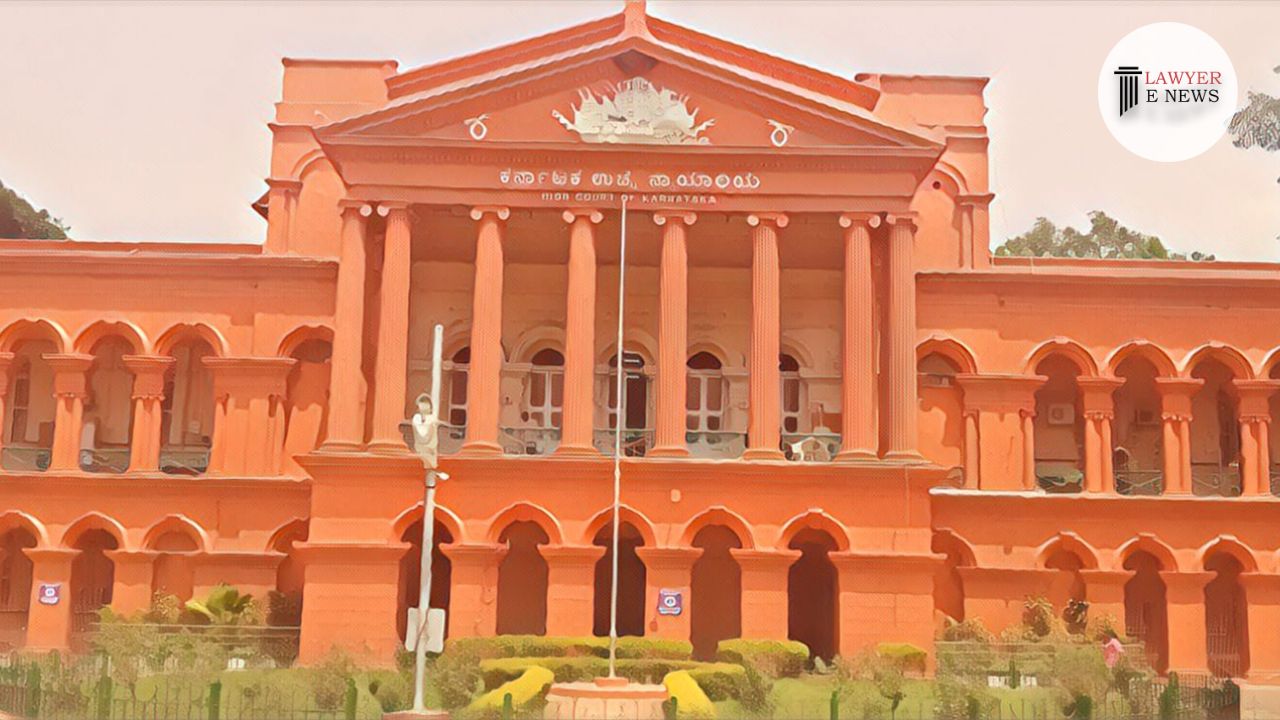-
by Admin
15 February 2026 5:35 AM



Karnataka High Court, presided by Justice M. Nagaprasanna, stayed the sanction granted by the Karnataka Governor for investigating Chief Minister Siddaramaiah under Section 17A of the Prevention of Corruption Act, 1988. The Governor’s approval had allowed investigation into allegations of corruption concerning land acquisitions and compensatory site allotments linked to the CM’s family. The court observed that the Governor's sanction was flawed, citing non-application of mind and procedural lapses in the decision-making process.
The controversy centers on allegations that Siddaramaiah, during his tenure as Deputy Chief Minister and Chief Minister of Karnataka, facilitated the illegal acquisition and conversion of 3.16 acres of land in Kesere Village for personal benefit. The lands, originally intended for urban development by the Mysore Urban Development Authority (MUDA), were allegedly purchased and converted into compensatory sites by Siddaramaiah’s relatives, leading to substantial financial gains. The Governor of Karnataka granted permission for investigating the CM based on a complaint by T.J. Abraham, an anti-corruption activist, under Section 17A of the Prevention of Corruption Act.
The central legal question was whether the Governor’s sanction under Section 17A of the PC Act was justified and whether it complied with legal standards.
Dr. Abhishek Manu Singhvi, representing Siddaramaiah, argued that the Governor’s sanction lacked proper application of mind. He noted that the Governor failed to consider the response from the Karnataka Cabinet and ignored crucial details provided by the Chief Minister in his defense.
The petitioners contended that the sanction was granted on the same day the complaint was filed, raising questions about its validity. Singhvi further argued that Siddaramaiah did not directly benefit from the alleged transactions, as the actions primarily involved his wife and brother-in-law.
Citing Nabam Rebia v. Deputy Speaker, the petitioners asserted that the Governor acted beyond his constitutional role by issuing the sanction without adequate deliberation.
Tushar Mehta, representing the Governor's office, argued that the Governor’s decision was based on a thorough examination of the complaint and relevant records. He emphasized that the Governor was empowered under Article 163 of the Constitution to act independently when the Chief Minister himself was implicated in allegations of corruption.
Mehta argued that the complaint raised serious questions about illegal land acquisitions and fraudulent compensatory site allotments, which warranted investigation.
The High Court noted several procedural lapses in the Governor’s decision-making process:
Non-Application of Mind: The court observed that the Governor failed to properly consider the CM’s defense and the Karnataka Cabinet’s recommendations. The approval appeared to have been granted hastily, without adequate scrutiny.
Lack of Procedural Fairness: The court highlighted the absence of a comprehensive inquiry before granting the sanction, as required under Section 17A of the Prevention of Corruption Act, which mandates careful evaluation before permitting investigations against public servants.
Irregularities in the Process: The court pointed to discrepancies in the timeline, noting that the show cause notice and sanction were issued on the same day, raising concerns about the thoroughness of the Governor’s review.
The Karnataka High Court stayed the Governor’s sanction, effectively pausing the investigation against Chief Minister Siddaramaiah. The court’s ruling stressed the need for strict adherence to legal procedures when dealing with allegations against high-ranking public officials. This case underscores the significance of due process and the limits of executive powers in approving corruption investigations.
Date of Decision: 24th September 2024
Shri Siddaramaiah vs. State of Karnataka & Others
